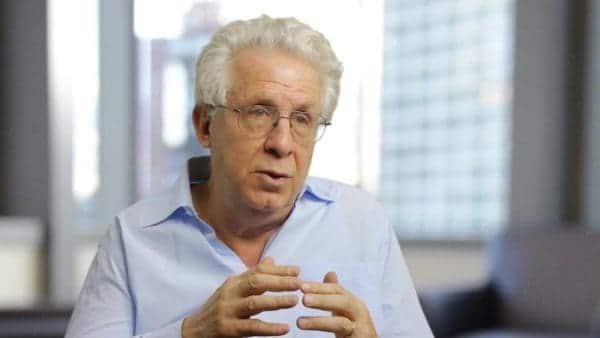
 As worldwide concern about the coronavirus continues to dampen the economic outlook, the markets keep churning, ending another week of volatility and causing some to worry that we’re in for a repeat of the 2008 financial crisis.
As worldwide concern about the coronavirus continues to dampen the economic outlook, the markets keep churning, ending another week of volatility and causing some to worry that we’re in for a repeat of the 2008 financial crisis.
That’s very unlikely, says former Fidelity president Robert Pozen, who thinks the overall economic disruption will be both minor and short-lived.
Markets rallied and then fell hard this week as investors continue their trigger-happy ways in the wake of last week’s significant market correction and fears over the COVID-19 outbreak and its impact on the worldwide exchange of goods in today’s globally connected economy.
The S&P 500, Dow Jones and the TSX/S&P Composite all posted major losses on Thursday, erasing much of the gains of the previous day, while the tech-heavy NASDAQ dropped 3.1 per cent on Thursday as investors either look for safe havens or get out of equities altogether.
But within all the turmoil cooler heads should prevail, said Pozen, senior lecturer at MIT Sloan School of Management, who thinks although we don’t know how deep the current correction will go, it has already been overdone.
“People who come up with estimates I think are just speculating but I would say this. I
don't believe that this is going to be like the 2008 financial crisis where you're going to
have a tremendous down that’s going to weigh down the economy for several years,” said Pozen, who appeared on Canada’s BNN Bloomberg Thursday.
“Within the next three months, six months, nine months, I can't tell exactly when the health authorities will come to grips with this. We’ve gradually been quarantining more people and so far the fact in the US has been modest. So, I would expect that this is going to be temporary in the sense of after three, six, nine months things will come back toward normal,” he said.
“This will not be a situation, in my view, that two and three years from now we’ll say, this was another terrible crisis like 2008 and 2009,” Pozen said.
Central bankers in countries worldwide have taken measures over the past couple of weeks to calm the markets, most commonly through reducing key interests rates. The US Federal Reserve cut its benchmark rate by 50 basis points on Tuesday and the Bank of Canada followed suit with a similar cut of half a percentage point on Wednesday. But rather than helping, the move seem to have stoked fears of a more major economic crisis.
Pozen says that in the case of the coronavirus fallout there are other tools that central bankers and governments should be employing.
“I think [the interest rate cut] helps very modestly in this environment,” Pozen added. “It’s really not interest rates that are changing things and leading to negative behaviour in the stock market. It’s people's concern about the fact that there's not a lot of travel there a lot of people are staying away from restaurants. So, this is really not a situation in which the interest rate cuts is going to have much help.”
“How many businesses are going to take out loans at one per cent when they wouldn't have taken loans out at one-and-a-half percent? Very few so I think it's of limited help,” he said.
Instead, Pozen points to potential moves by US Congress that could make a difference such as providing money for citizens without medical insurance or who have lost their jobs due to slowdowns in certain sectors, capital spending on needed infrastructure.
Pozen also thinks that the removal of tariffs worldwide could be of long-term help.
“The US has been engaged in a series of trade negotiations and many of them have led to higher tariffs, and we need to stop that,” Pozen said. “This would be a good time to reduce all tariffs to zero and to encourage as much global trade as possible.”
Leave a Reply
You must be logged in to post a comment.




 Share
Share Tweet
Tweet Share
Share




Comment